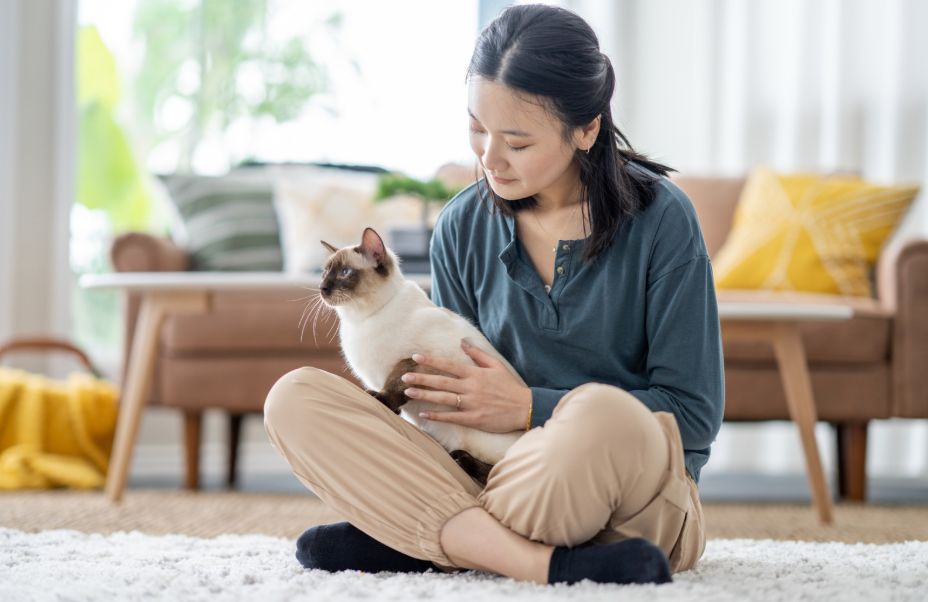As pet owners, we strive to create a safe and loving environment for our furry companions. We childproof our homes, secure hazardous chemicals, and keep dangerous objects out of reach. However, it’s easy to overlook some common household items that, while seemingly innocuous to us, can pose a serious threat to our pets. The truth is, many everyday products contain ingredients that are surprisingly toxic when ingested or even just exposed to our curious cats and dogs. Understanding these hidden dangers is crucial for preventing accidental poisonings and ensuring the long-term health and safety of your beloved animal.
1. Human Medications
This is perhaps one of the most frequent causes of pet poisoning. Over-the-counter and prescription medications, even those considered safe for humans, can be incredibly dangerous for pets due to differences in metabolism and dosage.
- Acetaminophen (Tylenol): Can be fatal to cats, leading to red blood cell damage and liver failure.
- Antidepressants, ADHD medications, heart medications, and vitamins: Can also be toxic.
Always keep all medications, human or pet-specific, securely stored and out of reach. If you suspect your pet has ingested any human medication, contact your veterinarian or an emergency animal hospital immediately. For more information on pet emergencies, visit Scottsdale Veterinary Clinic.
2. Certain Plants
While many pet owners are aware that certain plants like lilies are highly toxic to cats, the list of dangerous flora extends far beyond that. Many common houseplants and garden plants can cause a range of symptoms from mild gastrointestinal upset to severe organ damage and even death.
- Lilies: Extremely toxic to cats, causing acute kidney failure. Even small ingestions of pollen can be deadly.
- Sago Palm: Highly toxic to both cats and dogs, especially the seeds, which can cause liver failure, vomiting, diarrhea, and seizures.
- Oleander: All parts are highly toxic, affecting the heart.
- Rhododendrons and Azaleas: Contain grayanotoxins that can cause vomiting, diarrhea, cardiac issues, and coma.
- Tulips and Hyacinths: Bulbs can cause severe gastrointestinal upset, drooling, and lethargy.
- Marijuana: Causes depression, vomiting, tremors, seizures, and coma in pets.
Before bringing any new plant into your home or garden, always check its toxicity to pets. Resources like the ASPCA provide comprehensive lists of toxic and non-toxic plants.
3. Food Scraps
Sharing our food with our pets seems like a loving gesture, but many human foods are surprisingly harmful. While some are obvious (like chocolate), others are less so.
- Chocolate: Contains theobromine, which dogs cannot metabolize efficiently. Dark chocolate and baking chocolate are most dangerous.
- Grapes and Raisins: Can cause acute kidney failure in dogs, even in small amounts.
- Xylitol: Found in sugar-free gums, candies, baked goods, and peanut butter; causes dangerous drops in blood sugar and potential liver failure.
- Onions, Garlic, Leeks, Chives: Can damage red blood cells, leading to anemia.
- Avocado: Flesh generally safe, but pit, skin, and leaves contain persin, toxic to some animals; pit is also a choking hazard.
- Alcohol: Causes intoxication, vomiting, disorientation, coma, or death.
- Macadamia Nuts: Causes weakness, tremors, vomiting, and hyperthermia in dogs.
Always err on the side of caution and avoid feeding your pet table scraps, especially those containing ingredients from this list.
4. Household Cleaners
Products like bleach, ammonia, toilet bowl cleaners, drain cleaners, and even some floor cleaners can cause chemical burns, severe gastrointestinal upset, respiratory distress, and internal organ damage. Always store these items in secure, locked cabinets and wipe up any spills immediately. Ensure proper ventilation when cleaning to minimize inhalation exposure.
5. Pest Control Products
Rodenticides, insecticides, and snail baits are designed to kill pests but are equally dangerous to pets. These products often contain appealing ingredients, increasing the risk of accidental ingestion.
- Rodenticides: Cause internal bleeding, brain swelling, or kidney failure.
- Insecticides: Can cause vomiting, diarrhea, tremors, and seizures.
- Snail and Slug Baits: Contain metaldehyde, causing severe tremors, seizures, hyperthermia, and death.
If pest control is necessary, opt for pet-safe alternatives or keep products completely inaccessible to pets.
6. Antifreeze
Ethylene glycol, the active ingredient in most antifreeze products, has a sweet taste that is highly attractive to pets. Even a small lick can be fatal, causing acute kidney failure. Symptoms may appear subtle at first but progress quickly. Always clean antifreeze spills immediately, and consider propylene glycol-based antifreezes when available, as they are less toxic.
7. Batteries
Batteries (AA, AAA, button cells) are dangerous if chewed on or ingested, causing burns to the mouth, esophagus, and stomach. Button batteries are especially concerning as they can lodge in the esophagus and cause severe damage within hours.
8. Potpourri
Liquid and dried potpourri can be irritating and toxic. Liquid potpourri contains cationic detergents that cause burns if ingested. Dried potpourri can cause gastrointestinal upset and obstructions if eaten in large quantities.
9. Fabric Softener Sheets
These contain detergents that can cause drooling, vomiting, and mouth ulcers if ingested. The strong scent can attract curious pets. While small amounts are usually not life-threatening, they can cause discomfort.
10. Fertilizers and Mulch
Garden products like fertilizers can contain harmful chemicals. Bone meal and blood meal can cause gastrointestinal upset and stomach concretions. Cocoa mulch contains theobromine, the same toxic ingredient in chocolate, and can be dangerous for dogs.
Creating a pet-safe home requires constant vigilance and an understanding of potential dangers. By being aware of these 10 common household items, you can take proactive steps to protect your beloved pets from accidental poisoning and ensure they live a long, happy, and healthy life. If you suspect your pet has ingested a toxic substance, contact your veterinarian immediately or call an animal poison control center. For urgent care and expert advice, remember Scottsdale Veterinary Clinic is here to help.

